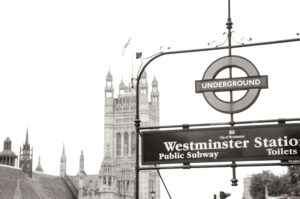 Photo by Cyrus Crossan on Unsplash
Photo by Cyrus Crossan on Unsplash
Hear from Louise* and Miracle, two peer researchers with lived experience of temporary accommodation (TA) who co-produced Z2K’s research report ‘Frozen in Time’. The researchers interviewed people living in TA in Westminster about the issues they face and the impact that living in TA is having on peoples’ lives. The research was launched last month at an event in Parliament hosted by Rachel Blake, MP for Cities of London and Westminster.
Miracle: My first experience of homelessness and temporary accommodation was in London during my late teens for about two years. For a young man with the ambition to hopefully do well in the world and succeed through education, those two years for me were really traumatizing (fighting forces of derailment with a strong will and focus to triumph through). The overall experience I had during that period of time involved living in bad housing conditions (mould, damp and pests) causing health issues, as well as the impact of burglaries. However, I went through adversity those two years and conquered it with cheerful spirits of hope for a better day someday. Since this time, I have had a nomadic existence because I had nowhere that I could call home in the UK. I moved from TA to a mixture of student accommodation and privately rented accommodation. More recently, I have found myself back in TA, placed in a hotel ‘out-of-borough’.
Louise: I lived in TA as a single parent placed out-of-borough. It felt like screaming in a sound-proofed room, hoping someone might hear. I felt exhausted from fighting to pin down who was responsible for the infestations and damp in the property. For my child, living in TA meant having a stressed mother whose spare time was spent chasing the council, growing up in an environment which did not allow pictures on the wall, pets, or any self-expression or personalisation – and no playdates due to the damp and disrepair.
Miracle: It has been a rewarding experience being a peer researcher on the Z2K temporary accommodation project. Working on the project and meeting like minds with shared experiences was for me a great opportunity to help dig into the heart of the TA experiences which many in Westminster are currently having. It has been satisfying to try to bring this reality closer to the eyes of decision-makers at Westminster City Council.
Louise: Interviewing people who had been placed in TA by Westminster City Council as part of the research project was the first time I had spoken to anyone else in TA about their experience, and the interviews immediately made me feel less isolated and more human again. I found it validating and cathartic to speak to others facing similar difficulties.
Miracle: It is clear to see from the findings that people living in Westminster TA desire more empathy and understanding.
Louise: In temporary accommodation you are always on the verge, on tenterhooks, never knowing when you’ll get told to leave. I felt helpless living out-of-borough, unable even to vote for the Westminster councillors who held my housing future in their hands. Then there is the stigma you fear if you share this with schools or GPs; the assumption you must have done something wrong to be in TA to begin with.
Miracle: There are a number of areas where change is needed, such as in the council’s engagement and communication with people.
Louise: All Westminster schools and GPs should read this report so they understand how TA affects their service users. Similar to my own experience, the vast majority of people I interviewed did not feel that their needs were met or understood. Whether it was complaints about damp and mould adversely exacerbating their health problems, or traumatised survivors of domestic abuse being placed in unsuitable accommodation, the common problem was the lack of communication and engagement on the part of the council. This left the interviewees, mostly women, feeling forgotten and as if they don’t matter.
Miracle: We need to see a change in the way in which people living in TA are often seen and treated.
Louise: The uncertainty and the worry of not knowing where or when they might be moved on caused families stress and insomnia, which affected their mental and physical health. This in turn affected school or work outcomes, despite trying their utmost to do well and succeed. Households needing temporary accommodation appear to be looked down on.
Miracle: For so many, living in TA is not temporary. Therefore, improving TA standards is surely an area where change is vital. I believe that the report will help to bring a dose of reality to the current understanding of temporary accommodation at Westminster City Council, so that there can be a different tomorrow.
Louise: I believe that if the council staff had carried out the interviews we did, and experienced the resilience and tenacity of these people, then they would treat them with more respect, inclusion and engagement. Meaningful dialogue, not stonewalling, is what is needed to free people living in temporary accommodation from the state of limbo that they find themselves in.
*Not her real name

